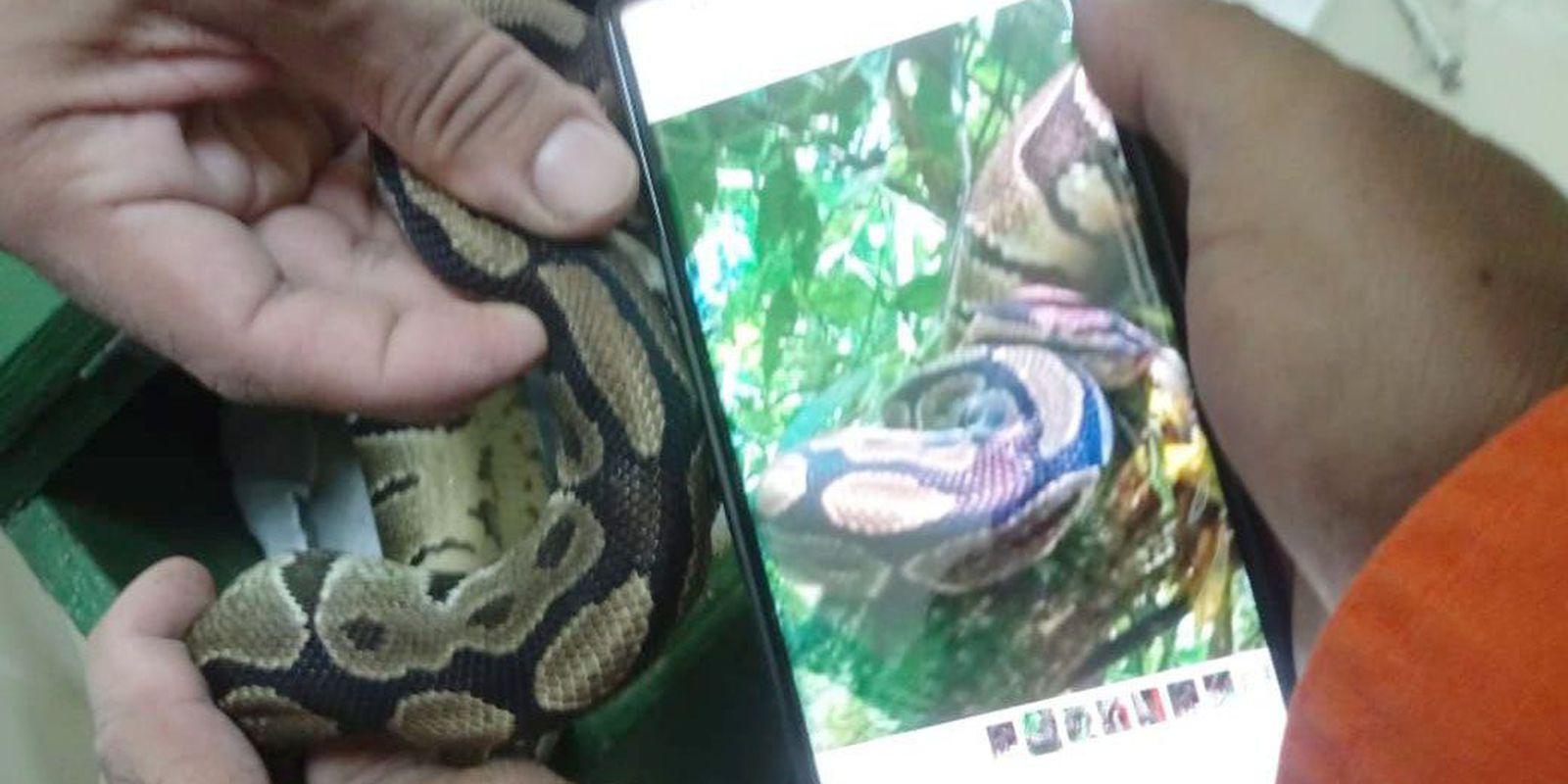A snake of sorts ball python (python regius) was found and removed from the Tijuca National Park, in Rio de Janeiro, last night (8). The animal is exotic, that is, it is not native to Brazil, and had been released in the conservation unit, last Friday (3), by mistake, by firefighters. They thought it was the native boa constrictor (boa constrictor).
The python was attacked by a dog in the Tijuca Forest and taken by him to a house. Seeing that the dog was with the snake, the owner of the residence called the Fire Department.
Veterinarian Jeferson Rocha Pires, from the Wild Animal Recovery Center at Estácio de Sá University, confirmed, through the color patterns and designs on the snake’s scales, that it was a python that had been released last week.
The snake couldn’t resist the injuries caused by the dog and ended up dying. For biologist Jorge Antonio Lourenço Pontes, a researcher at the State University of Rio de Janeiro (Uerj), specializing in herpetofauna [répteis e anfíbios]the snake could not have been released into the forest without first being evaluated by a specialist.
Health conditions
The standard procedure is to send the animal to a Wild Animal Screening Center (Cetas), which, in Rio, is located in the municipality of Seropédica. The specialist could have made the correct identification of the species. And, if it was a native animal, a veterinarian could have assessed health conditions prior to release.
“The animal may be apparently healthy and carrying a very serious and highly contagious parasitosis or virus”, he observed.
In addition to the health risk, there is also the risk of the exotic species becoming invasive, reproducing on site. If the python found another snake of the same species in the forest, it could generate offspring and colonize the place.
Some female snake species are capable of parthenogenesis, that is, they are capable of cloning themselves, reproducing without the need for a partner. “We researchers used to think that these animals are not capable of parthenogenesis. Today, we discovered that even our anacondas give birth through parthenogenesis. Several species of python have already demonstrated this ability,” said Pontes.
According to him, the creation of exotic animals and their release into the wild presents, therefore, a problem for local biodiversity. In Florida, in the United States, pythons that have escaped captivity have become a huge problem for wildlife, threatening native fauna.
In Brazil, American water tiger turtles (Trachemys scripta) have also become an invasive species due to the release of these animals into water bodies in the country. The species, now banned here, started to threaten local species, such as the Brazilian water tiger (Trachemys dorbigni), with a less aggressive behavior than the American one, even hybridizing with it.
“Fauna and flora remain balanced because they have a relationship of adaptation. They already have their predators, their food, everything provided within this ecological system. When you introduce an exotic species, you are introducing a different element to that balance, which can cause some inconvenience”, explained the head of Parque da Tijuca, Viviane Lasmar.
Imbalance
According to the press office for the Tijuca National Park, the snake and the dog that attacked it are considered exotic species in the park.
According to Viviane, the domestic animals (cats and dogs) that live in the houses around the park represent a serious problem, because many of them roam free in the forest.
“Domestic animals, cats and dogs, also have great potential to cause imbalance. They are animals that have the habit of hunting and can interfere with the ecological balance of this forest and can bring diseases to the local animals”, he pointed out.
According to the head of the park, in this specific case, the hunted animal was an invasive snake, but there are many cases of predation of wild fauna by cats and dogs.
In addition to trying to raise the awareness of local residents so that they do not let their animals loose, Viviane stressed that visitors are not allowed to enter the park with their pets.















